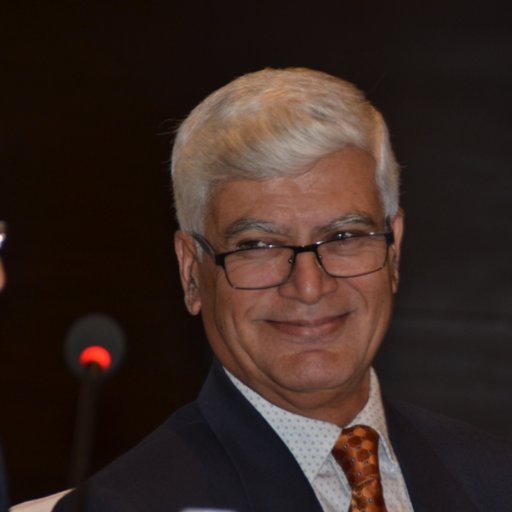Opinion
Finding our way
The making, unmaking and re-making of Nepal’s foreign policy over the years
Shambhu Ram Simkhada
In any foreign policy making, there is an irreducible core, sovereignty, territorial integrity and political independence, defined as vital national interests, which remain (or should remain) outside the arena of domestic political changes. But foreign policy is also decided by the ruling elite with changing ideological predispositions, worldviews and interests as well as socio-economic priorities and cultural affinities. These two aspects make the domestic politics-foreign policy interface highly significant and complex.
Nepal is no stranger to this phenomenon with each new regime seeking to put its stamp on foreign policy. The latest in this series of substantive or cosmetic manoeuvres is the High Level Foreign Policy Review Task Force formed by the Deuba-led Nepali Congress-Maoist coalition in 2017. The task force worked hard and produced a report which was submitted to the government. Despite the recommendations of the report which was prepared by professionals, the current government seems to be trying to reinvent the wheel. As Nepal undergoes far-reaching internal changes, how should the challenges of foreign policy making based on past experiences and present realities be met?
Yam to bridge
The historical ‘yam between two boulders’ made cautious relations with the two powerful immediate neighbours a vital foreign policy priority. Post-1950 Nepal strengthened its identity with a proactive role and merit-based stance on international issues even at the height of the Cold War. Some of the foreign policy initiatives of the first elected prime minister BP Koirala—establishing diplomatic relations and visiting Israel—were so farsighted that many, unhappy then, adopted that policy later. In 1960, king Mahendra dismissed BP’s democratically elected government and dismantled multiparty democracy. But there was continuity in foreign policy, enabling Nepal to carve out a unique space in international relations and win a seat in the UN Security Council twice. Balancing the two neighbours combined with ‘rapid opening up’ with the rest of the world was the guiding principle of Nepal’s diplomacy throughout Panchayat rule.
After 1990, Nepal’s foreign policy started to fluctuate. Sections of the new elite felt politically, economically and socio-culturally closer to the south while the left-nationalist combine stressed equi-distance, equi-proximity or equanimity. Amid this fluctuation came the insurgency, named after Mao, calling India expansionist and threatening to make Nepal ‘dynamite’ in a ‘tunnel war’ against it. The posture did not match their external support and internal rise. Lately, internal discord and external demands are affecting Nepal’s foreign policy with diplomacy unable to deal with the challenges of internal vulnerabilities and external pressure. A crisis of confidence with both neighbours, the Bhutanese refugees fiasco and the plight of Nepali migrant workers are some of the painful effects. In such a context, the following underlines priorities in remaking Nepal’s foreign policy.
Transforming relations with India and China: Proximity adds vitality but also complexity in inter-state relations demanding high priority and sensitive handling. The Eminent Persons’ Group was created to reaffirm the vitality of the all-encompassing relations with India by updating its lynchpin, the 1950 India-Nepal Treaty of Peace and Friendship.
Nepal lies between two great civilisations, powerful countries and now prosperous economies turning the old ‘revenge’ into the new ‘reward’ of geography a real possibility. But changing the landlocked geography to land-linked is only possible with political vision and diplomatic skill. For this, the first need is to balance the opportunities of time and the compulsions of space. Second, for the ‘bridge’ to be vibrant, the users on both sides must be confident that it will not collapse and be ready to use it and pay the toll. Most important, no country can prosper without first putting its own house in order.
So, transforming the natural relations with rising China and India based on each other’s long-term needs could be the most significant challenge in making or remaking Nepal’s foreign policy. As we deal with politics, economics and security, peoples and goods, highways, railways and airways under the power and pressure of the purse, the quintessential question is whether we are internally prepared to handle the traffic waiting to pass through the great crossroads of history and geography.
International and regional arena: Prioritising vital relations with the two neighbours without making others feel neglected is the real test of Nepal’s diplomacy. Despite our abiding faith and proactive role in the UN, Nepal recently faced humiliating defeats in the elections to the Security Council and the General Assembly. Our long dedicated peacekeeping role also needs recognition. What are our plans for ‘healing the wounds and wiping the tears’ aspect of our peace process and membership in the UN Human Rights Council for a better profile in the world? What about our role in international financial institutions, the World Trade Organisation, South Asian Association for Regional Cooperation and Bay of Bengal Initiative for Multi-Sectoral Technical and Economic Cooperation?
Development diplomacy
We have expanded our diplomatic presence with increased expenses to support our socio-economic development by promoting trade, investment, tourism and technology transfer. To promote gainful foreign employment and better serve Nepali workers, we have opened embassies in almost all the major labour markets and deputed labour attachés. Why then are Nepalis exploited, lowly paid and mistreated in many places? How do we reduce the huge trade deficit? Why have we not utilised debt forgiveness opportunities? What about new export markets? New missions in energy rich strategically important Central Asia and a role in the Shanghai Cooperation Organisation and Asian Infrastructure Investment Bank can be discussed.
Understanding the vitality and complexity of Nepal’s foreign policy is essential for addressing its dilemmas and utilising opportunities. A national consensus not to make foreign policy a tool in the domestic competition for power or partisan and personal self-interests is another precondition. Comprehension and consensus requires homework on issues of vital national interest. Foreign policy institutions should be strengthened by appointing committed and competent individuals capable of articulating national priorities to the international community. Periodic reviews must also consider classification of missions as strategic, functional and representational. Appointments should fit those roles to restore the dignity of the posts and promote the interests of the country.
Simkhada is the former ambassador to Switzerland and a member of the High Level Foreign Policy Review Task Force.




 9.33°C Kathmandu
9.33°C Kathmandu










